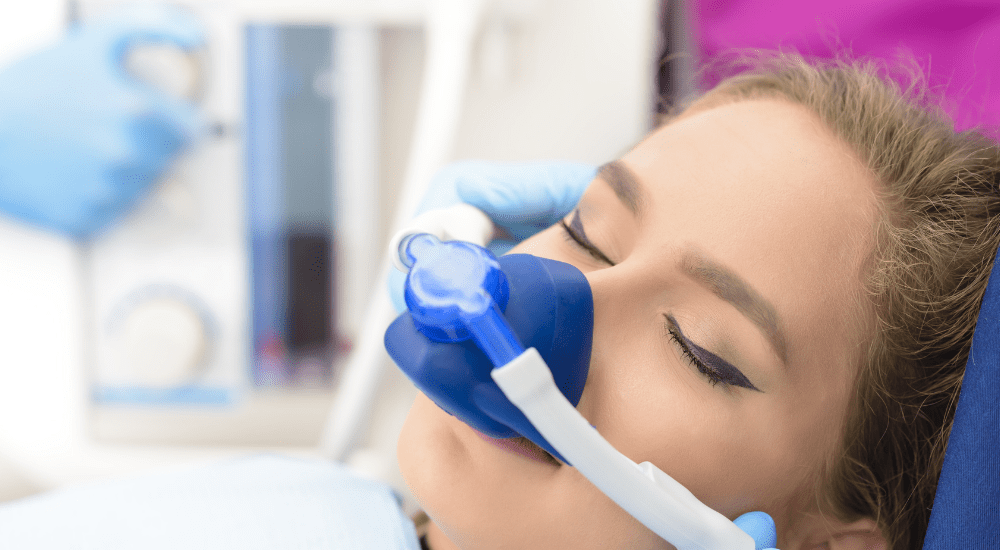
Sometimes we all need a little help getting through tough times- even when those tough times include dental procedures. In fact, many people are afraid of dental procedures. It’s such a big deal it even has its own name: odontophobia, which is fear of the dentist.
Unfortunately, sometimes odontophobia can keep us from getting even routine dental cleanings and exams, leaving potential problems undiagnosed and at risk for worsening. While there are many things you can do to alleviate some of the stress and fear associated with going to the dentist (such as meditation, deep breathing, diffusing oils, or distracting yourself) sometimes patients need a little bit more help relaxing.
That’s where sedation dentistry can help.
WHAT IS SEDATION DENTISTRY
Sedation dentistry is using a sedative to help calm and relax the patient during a procedure. It can be used for anything from routine cleaning to a dental procedure such as a filling or root canal. Sedation dentistry for relaxation is usually done via a gas called nitrous oxide, which is sometimes referred to as “laughing gas.” Nitrous oxide is administered via a mask like the kind you would wear to receive oxygen. It promotes a feeling of calm and relaxation and does not make the patient unconscious. In fact, the effects of nitrous oxide do not last long once it is removed from the patient’s oxygen tank, and after a brief waiting period, patients can safely drive themselves home.
OTHER TYPES OF SEDATION
Dr. Abelar offers other types of sedation for more complicated procedures, such as fillings and root canals, to help mitigate any discomfort involved in the procedure. Oral sedation may be used for some procedures. Dr. Abelar would prescribe this ahead of time and the patient would take it prior to the procedure at the prescribed time. Oral sedation does not put the patient into a deep sleep, however, they most likely will not remember the procedure after it is complete.
Patients may also need (intravenous) IV sedation, which is administered through the vein and best for surgical procedures. Intravenous sedation will put the patient to sleep during the procedure and will require the patient to have a ride home after the procedure is complete.
If you require any type of sedation, Dr. Abelar will discuss this with you prior to your appointment. In the case of nitrous oxide, if you are interested in receiving this type of sedation, speak to your dental tech before your treatment, and nitrous oxide can be arranged.






